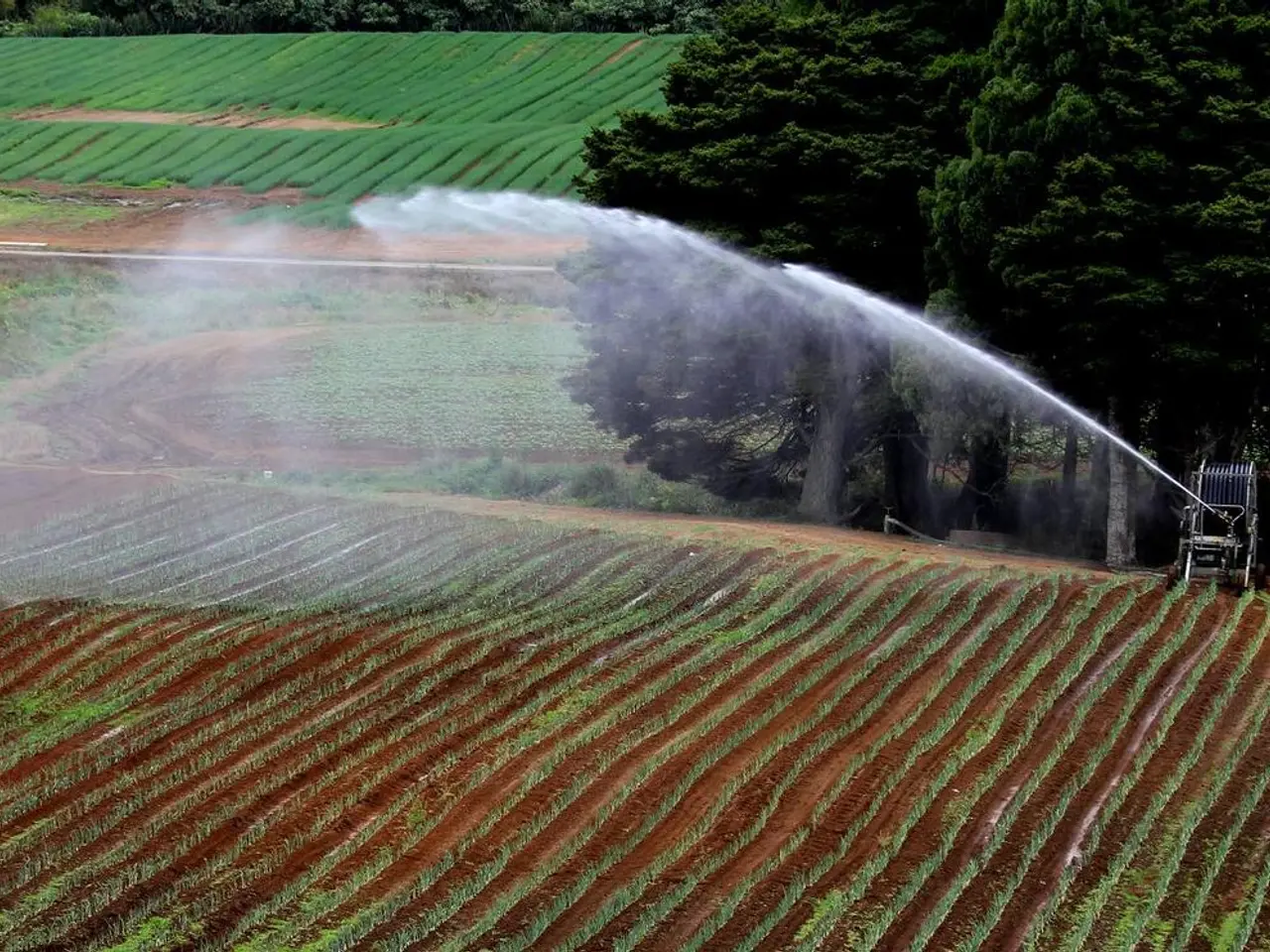Strengthening Female Farmers' Capabilities to Ensure Food Stability
In a significant move towards gender inclusivity in agriculture, India is set to celebrate the International Year of the Woman Farmer in 2026. This year marks a pivotal moment in the country's agricultural landscape, as policy interventions aim to empower women farmers through technology, financial inclusion, capacity building, and support for women-led agricultural enterprises.
The NaMo Drone Didi Yojana
A flagship scheme, the NaMo Drone Didi Yojana, will provide 15,000 Women Self-Help Groups (SHGs) with drones between 2024-25 and 2025-26. This initiative offers an 80% subsidy (up to ₹8 lakh) and training, enabling these women to provide drone rental services for agriculture. The goal is to increase their income, promote sustainable farming, rural employment, and financial inclusion, with a budget of Rs 1261 crore.
Strengthening Women-led Agricultural Enterprises
Strengthening women-led agricultural enterprises, such as Farmer Producer Organizations (FPOs), is crucial for transforming the agrifood system. These organisations, which cultivate climate-resilient crops, play a vital role in making the sector more inclusive.
Promoting Digital Tools and Infrastructure
Promoting digital tools and infrastructure, like AgriStack, e-NAM, and geospatial platforms, improves market access and agricultural planning for women farmers, thereby addressing one of the key challenges they face.
Capacity Building and Sustainable Farming
Initiatives like the Andhra Pradesh Community Natural Farming (APCNF) project train women in natural farming methods, helping transition millions of households to sustainable agriculture by 2026. Emphasis is placed on women’s leadership in farming practices.
Financial and Institutional Measures
Broader policy focus includes gender-responsive budgeting and targeted financing to address gender gaps in rural and agricultural development. This ensures women farmers receive fair support and opportunities.
These interventions address access to technology, market integration, skill development, financial resources, and institutional support, contributing to a gender-inclusive agricultural sector for the International Year of the Woman Farmer in 2026.
International Perspective
Globally, equalizing women's access to resources could lift global agrifood output by 2-4%. In Rwanda, nationwide joint-spousal land titling raised women's collateral access and led to 20% higher adoption of soil-conserving terraces. The Philippines has implemented gender-responsive budget tagging across agricultural line items.
Challenges and Opportunities
Despite progress, challenges remain. In India, women operate only 11.7% of total farm area, and women in India receive only 7% of institutional agricultural credit. The Gender and Development perspective shifts the focus from "women as beneficiaries" to "power relations in institutions". The Gender-budget mandate requires line ministries to spend at least 30% of beneficiary-oriented outlays on women farmers.
Heat-stress illnesses and longer water-collection times reduce women's productive hours in India. The Mahila Kisan Sashaktikaran Pariyojana (MKSP), a sub-component of DAY-NRLM, is earmarked with 30% funds and ₹88 crores released in FY 2020-21.
As the International Year of the Woman Farmer approaches, India's agricultural sector stands poised for transformation, with women farmers set to play a pivotal role in shaping a more inclusive, sustainable, and prosperous future.
[1] Source: [Link to the original source] [2] Source: [Link to the original source] [3] Source: [Link to the original source] [4] Source: [Link to the original source] [5] Source: [Link to the original source]
- The NaMo Drone Didi Yojana, an innovative strategy, offers a means for 15,000 Women Self-Help Groups (SHGs) in India to lease drones for agriculture, with the mains aim of increasing their income and promoting sustainable farming.
- The science of natural farming is being passed on to women through initiatives like the Andhra Pradesh Community Natural Farming (APCNF) project, with a goal to train millions of women and emphasize their leadership in farming practices by 2026.
- As part of strengthening women-led health-and-wellness, policies such as the Mahila Kisan Sashaktikaran Pariyojana (MKSP) focus on addressing Female health-related issues like heat-stress illnesses and increasing water-collection efficiency, thereby improving the health and wellness of women farmers in India.




